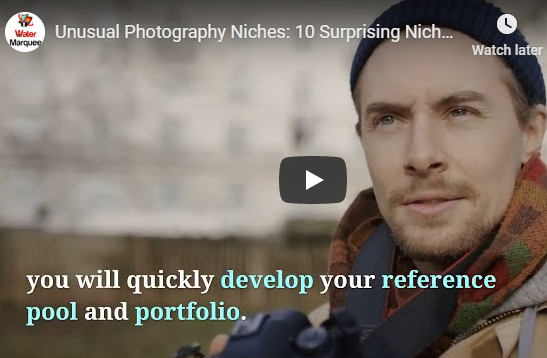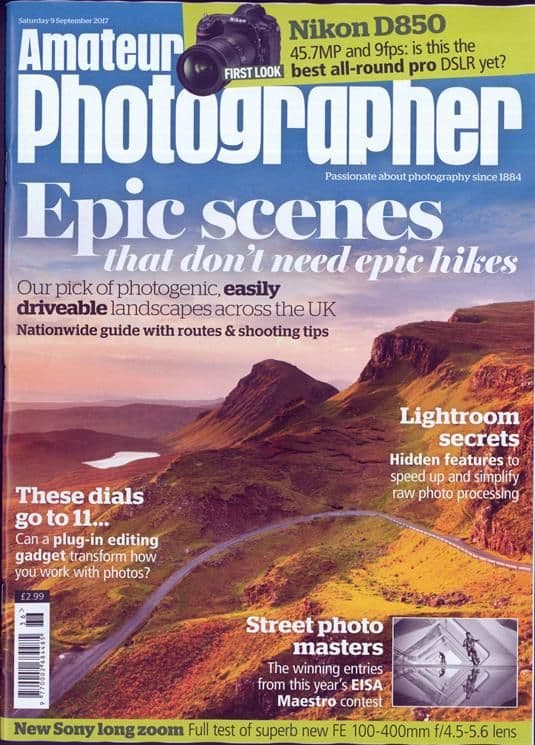
If you want to win photo competitions, you can use some foolproof tips to succeed. These tips will help you locate a contest, prepare a winning entry, and submit it. These tips are simple to follow and will help you make your contest entry standout. They are listed below. Here are nine ways to win photo competitions.
9 ways to win a photo contest
Although photo contests can be a great way for you to show off your work, they can be hard to win. These 9 fool-proof tips will help you make the most of the opportunity. The first step is to read the rules carefully. Many entries are disqualified due to violations of contest rules.

The criteria for judging a photo contest do not focus on the technical quality or the presentation of the photo. The judges look at the composition, lighting, and leading lines of your photos. You will win the competition if your shot is great and has minimal distractions.
Find a competition
You can enter a competition to see if you're a professional or amateur photographer. They can also offer you great feedback and a way to get your work out into the public. You don't have to win every competition, but that doesn't mean you shouldn't enter them.
It is important to do your research. To see what the judges are looking to see, you may be able to find past winners in photo contests. This will increase your chances to win.

Submit your winning photo
The Nikon Small World Photo Contest has announced its 45th Annual Winners. These winners include the Edwin Cohn Professor in Pediatrics at Harvard Medical School, Rita Strack, Senior Editor of Nature Methods, Tom Hale (Staff Writer at IFLScience), and Eric Clark, Research Coordinator at National High Magnetic Field Laboratory.
FAQ
Is digital photography hard?
Digital photography isn't as simple as you might think. You will need to spend time learning how to use these tools correctly. To be able to take different types of shots, you must know what settings are appropriate. Learning by doing is the best way to learn. Practice makes perfect.
Cameras available for purchase
There are many places online that you can purchase cameras. B&H Photo Video is a well-respected retailer. They have knowledgeable staff that can help answer any questions you may have.
B&H ships fast and securely so it is easy to have your order delivered at your doorstep.
If you want to learn more about shopping for cameras, check out this video.
What Camera Should I Get
All depends on the type of photographer that you want to be. For beginners, a simple point-and-shoot is the best camera.
However, once you've mastered the basics, you'll likely want something more advanced. The decision is yours.
These are some considerations before you purchase a camera.
-
Features: Which features are most important? Are you going to use autofocus, manual settings, or both? How many megapixels does your camera have? Is there an optical viewfinder?
-
Price: How much are you willing and able to spend on your camera? Are you going to buy a new camera every year?
-
Brand: Do you feel satisfied with the brand you choose? There is no reason to settle for less than the very best.
-
Functionality: Can you use your camera in low light situations? Are you able to take high-resolution images?
-
Image Quality: How clear are your images and how sharp are they?
-
Battery Life: How long does your camera last between charges.
-
Accessories: Are you able to attach additional lenses or flashes? ?
Photography is a talent?
Photography is not an artistic talent. It is an art that takes practice, training and experience. It takes years of study and practice to become proficient at any aspect of the craft.
Photography is a business, and you should have a plan on how you're going to make it profitable.
This requires you to identify the type of client you are trying to attract and to find out how to reach them.
You must know their identity and what they want. It is important to communicate clearly and convincingly with them in order to convince them to use your services.
This means that potential clients will require you to be well-organized.
Before you approach potential customers, it is necessary to compile a portfolio. This can be done electronically using software programs or printed on paper.
After creating a portfolio you should look for opportunities to present it. This could be by approaching businesses directly, or even advertising online.
How do I become a good photographer?
Photography is an art. It requires dedication, patience, dedication, and, above all, passion. If you are passionate about photography, you will find yourself doing much better than if you were just going for the money.
It is essential to understand how to use your camera effectively. It is important to understand the basics of composition, lighting and exposure. You also need to have a decent understanding of Photoshop.
Although photography is difficult, once you are proficient, it is rewarding to create images that capture moments in the moment that will never be forgotten.
You can learn more by reading books, taking classes, or participating in competitions if you are looking to improve your skills. This will give you experience and confidence that will help you improve. What equipment do you need?
It all depends on what type photography you do. You will need a wide angle lens if you want to photograph landscapes.
A telephoto lens is essential for portrait photography.
A tripod is essential when taking photographs. It allows for you to sit back and compose your image without moving.
Camera bags can be useful for carrying your camera and memory cards as well as other accessories.
If you have a compact digital camera, a flash unit will be necessary.
An DSLR (Digital Single Lens Reflex) is the best camera for beginners wanting to take professional quality photographs.
DSLRs are very popular because you can control every aspect of the photo including shutter speed, apertures, ISO sensitivity and white balance. You also have the option to use autofocus, autoexposure lock and self-timer.
How can I look good on pictures?
You will look your best in photos if they are taken by you. You'll learn how you pose for the camera and which angles are best. Learn how to use lighting, props and other tools to enhance your natural beauty.
This course will teach you how to choose clothing that fits well, make-up that looks great, and hairstyles that flatter your face shape.
If you are not happy with your results, we will show you how you can retouch them using Photoshop and other editing tools.
So, go ahead - take some self-portraits!
Which Lenses Do I Need?
Beginners often ask, "What lens should I purchase?" The choice is difficult because of the many options.
You don't have to buy a brand new lens each time you purchase a new camera. You can simply add lenses later.
Here are three types you might be interested in.
-
Wide Angle Lens (14mm - 24mm): These lenses give you a wide angle of view, allowing you to capture more of your subject. Zooming in can be done without affecting image quality.
-
Normal/Standard zoom lens (28mm -70mm). These lenses allow the user to adjust focal lengths while still maintaining good image quality.
-
Telephoto Zoom Lens (70mm to 200mm): These lenses make it easy to capture distant subjects. They allow you to focus on your subject despite the fact that they may seem small in the frame.
Combining lenses can create different effects. You can use a normal lens for close-up detail and switch to a zoom lens to capture distant objects.
Statistics
- This article received 13 testimonials, and 100% of readers who voted found it helpful, earning it our reader-approved status. (wikihow.com)
- Get 40% off Adobe Creative Cloud(opens in new tab) (creativebloq.com)
- That's the easiest way to get blurry photos 100% of the time. (photographylife.com)
- By March 2014, about 3 million were purchased monthly, about 30 percent of the peak sales total. (en.wikipedia.org)
External Links
How To
What are the requirements to be a good photographer?
For any photography job, you will need to have technical and artistic knowledge as well as business acumen.
Technical knowledge includes understanding exposure settings and camera functions, lens types, film speeds, developing techniques, and lens types.
Understanding composition, lighting, and poses is essential to artistic ability. You also need to know how to use Photoshop and other editing software.
Business acumen includes budgeting, scheduling and time management. It also involves dealing with clients.
Photography is something you must be passionate about if your goal is to become professional photographer.
You can learn about photography by taking classes at school or college or through online courses.
You can also find many books that will teach you everything about photography.
You should not only learn photography but also develop your own style.
This will enable you to be different from other people in the field.
Over the years, photography has evolved. In the past people used cameras like the Kodak Instamatic or Polaroid instant camera.
Today digital cameras are more popular than ever before. These days most photographers use their smartphones to take photos.
Although it is possible to purchase a smartphone capable of taking high-quality images you should invest in a DSLR (Digital Single Lens Reflex).
You can control all aspects of your shot with a DSLR, such as shutter speed, aperture and ISO sensitivity.
These features make it possible to create beautiful photographs with a variety of effects.
These controls are also available to adjust the mood of your photograph.
For example, a fast shutter speed could blur your subject.
You can make them appear like they're moving by increasing light into the camera.
The scene can also be adjusted to change its mood by changing the color temperature.
To give the image a warmer feeling, increase the red content if there is a lot of blue light.
To begin with, you may find it difficult to know which direction to point your camera.
Once you get the basics down, it will be easy to see that it's not difficult at all.
It is actually much simpler than you might think.
The first time you start out, you'll probably only be able to shoot landscapes and close-up images of objects.
Do not worry! As you gain experience, your ability to capture portraits and abstracts will improve.
Once you've mastered the basics you can move on and learn more advanced subjects.
These tips will help you get started.
-
Choose a good location. You should choose somewhere you feel comfortable and relaxed.
-
Find something interesting to photograph. Photograph unusual or rare objects.
-
Take plenty of practice pictures. Practice makes perfect!
-
Experimentation with different angles is possible. Your goal will dictate how you hold your camera.
-
Use different lenses. Different lenses offer different perspectives.
-
Shoot in low-light conditions. It can be difficult for you to photograph in bright sunlight.
-
Practice framing the shot. Framing is one of the most important skills when capturing an image.
-
Learn how you can use your camera settings. It is a great way to improve your photography skills by experimenting with the settings of your camera.
-
Keep learning new techniques. There are many ways you can learn about photography. Visit local galleries and museums.
-
Read magazines and books. Reading about photography will teach you everything you need to know.
-
Join a photography club. Clubs for photographers often organize events that encourage members share their work.